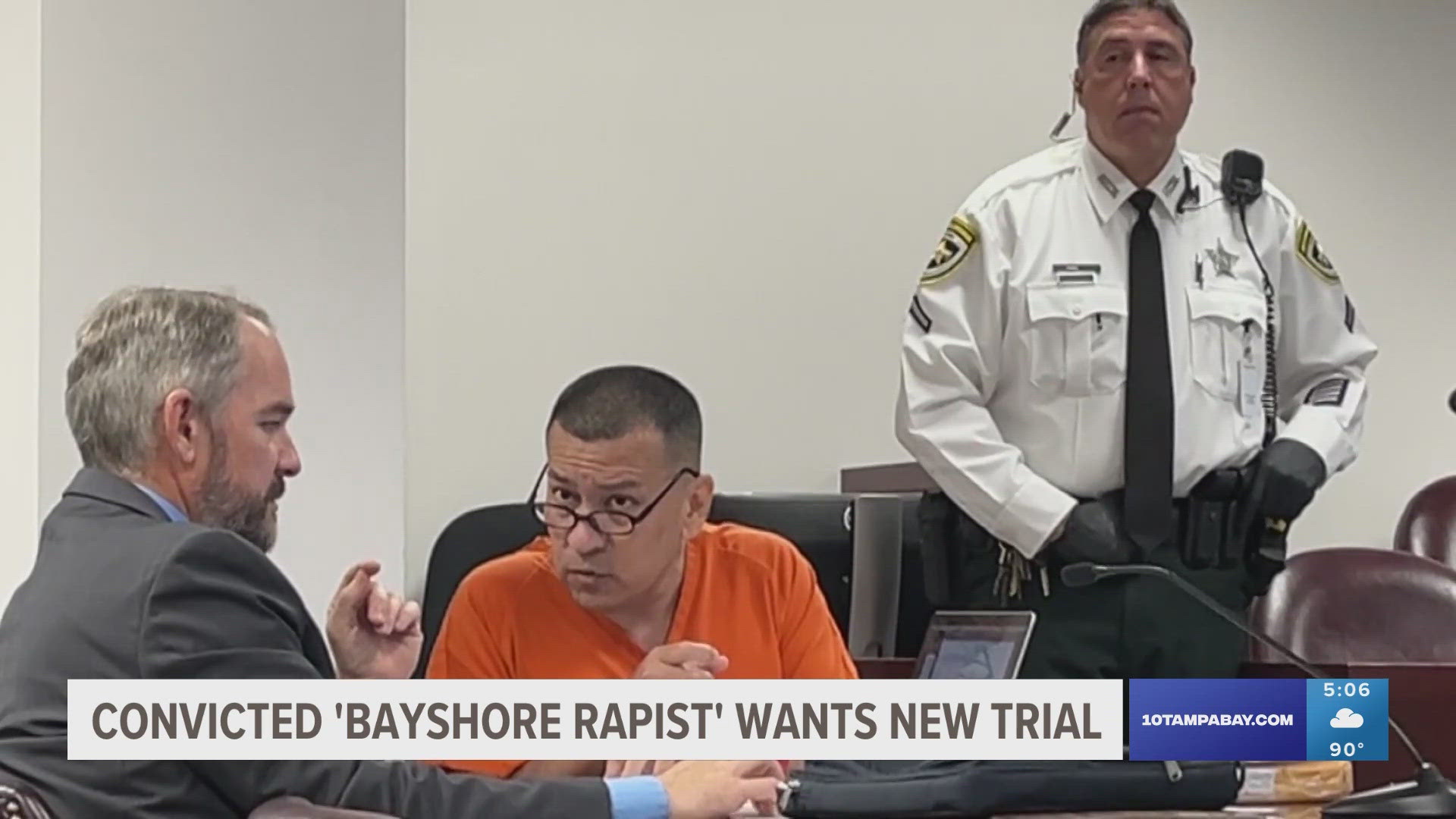TAMPA, Fla. — The man Tampa police dubbed the "Bayshore Rapist" was back in a Hillsborough County courtroom on Tuesday.
Luis Harris was convicted of posing as a police officer, kidnapping, and then raping a woman in the Bayshore Boulevard area of Tampa in 2011. An appeals court, however, has ruled there are enough questions about the evidence shared by prosecutors in the case to warrant what’s called a post-conviction relief hearing.
Harris claims Tampa police and prosecutors withheld video evidence that should have been shared with the jury in his original case, including video from several traffic cameras and two TV weather cameras at the corner of Bayshore and Bay to Bay boulevards.
Harris, who is now serving a life sentence, is representing himself as he did 13 years ago.
He bases many of his allegations on an anonymously written whistleblower letter sent to him on TPD letterhead from a person who claims to be a retired police officer. It contends that at least 13 angles of video show Harris' car that night as well as the victim — and that none of the images show a crime being committed.
Harris said if true, those images were never shared with him. He asked the court to grant him a private investigator to explore whether copies of those videos still exist.
The judge granted the motion, providing 10 hours’ worth of work to find out if the videos exist and another 10 hours to obtain and make copies if they do. The estimated cost is approximately $1,000 to taxpayers.
Editor's note: The related articles link to previous 10 Tampa Bay coverage but due to technical issues, the formatting on these years-old articles is corrupted.
Harris also asked the court to order deputies to remove his handcuffs during the court hearings, calling them restrictive, and making it difficult for him to sort through papers and write down information.
Since he is representing himself, the judge also granted that motion as long as bailiffs can find an alternate way to safely restrain Harris.
“My reason here is to overturn this life felony, kidnapping and conviction, judge,” Harris said. “And to try and demonstrate to the court that they never was a kidnapping or a rape, or an impersonation of an officer. And I need my hands-free to be able to filter through my documents.”
Harris' legal strategy appears to be one of creating enough doubt at his upcoming post-conviction relief hearing — or at least enough question about whether he was able to fairly defend himself — to possibly warrant a new trial.
The judge asked all parties to come back to court on July 18 for an update on the videos and what the private investigator did or did not find these many years later.
Harris maintains he’s innocent, but investigators said several witnesses came forward before his original trial alleging he pretended to be an undercover narcotics officer.

